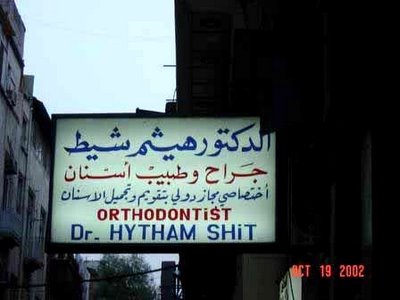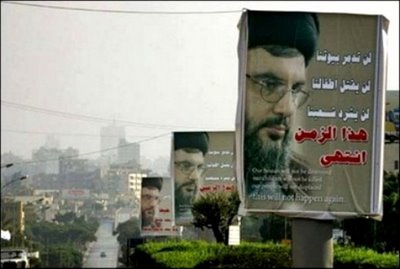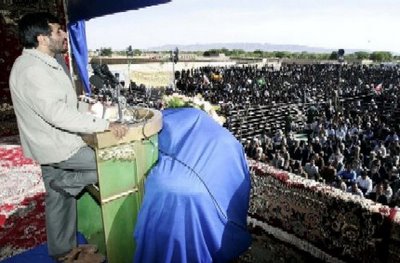Fixing water, electricity sectors will cost $200 million: Fneish
Minister mulls placement of mobile generators in south
By Osama Habib Daily Star staff
BEIRUT: The electricity and water sectors in Lebanon suffered close to $200 million in losses as a result of the Israeli offensive, Energy and Water Minister Mohammad Fneish said on Wednesday. "We have not completed the survey of the damage caused by the Israeli attacks but we estimate the total cost in the electricity and water sectors at around $200 million," Fneish told a news conference. The minister said that the ministry may either borrow more money to repair damage or seek financial assistance from the donor states. Lebanon hopes to obtain $500 million in aid from a donor conference that will be held in Stockholm at the end of this month. It is not clear if any of this money will then be used to repair electricity lines and water networks. The 34 days of relentless Israeli attacks targeted power plants, high-voltage cables and fuel-oil reservoirs in the South and North of the country. But surprisingly the Israelis spared the major electricity plants in the country. All of the fuel-oil reservoirs at Jiyyeh on the southern coast were set ablaze by Israeli warships in an attempt to apply pressure on both the government and residents of the South. The Jiyyeh attack caused Lebanon's worst oil spill, which spread along most of the coast, prompting the government to call for international assistance to help contain it. As a result of these attacks, Electricite du Liban was forced to increase electricity rationing to most areas of Lebanon. The Israelis also prevented tankers loaded with gasoline and fuel oil from unloading in Lebanon during the first weeks of the war. The UN and the US put pressure on Israel to ease the blockade and three tankers finally delivered more than 50,000 tons of fuel oil and gasoline. "Despite the severe power rationing we were able to provide electricity during the entire war," Fneish said. He added that Beirut was getting around 16 hours of electricity per day during the war while the rest of the country got less. The minister said it will take at least six months to rebuild the oil reservoirs in Jiyyeh, adding that the ministry is considering placing mobile generators along the coast to produce electricity until repairs are completed. He added that thanks to contracts signed with Kuwaiti and Algerian companies, the ministry was able to build up a fuel-oil reserve that can last between a month and 45 days, depending on the extent of rationing. Fneish said that EDL had sent repair teams to Southern villages and managed to connect the high-voltage cables. "There are at least 20 villages in the South that were destroyed during the war and for this reason the ministry may install temporary generators." Fneish said that Syria, Iran, Egypt and Kuwait have all pledged to help repair damage to the electricity sector. Responding to a question, the minister said that there is no reason for motorists to line up at gas stations to fill their cars. "We have sufficient gasoline to last us for a good time," Fneish said, warning that some gas stations were charging higher prices than the official rates. He added that the consumer protection department at the Economy Ministry has fined 200 gas stations for price gouging. Fneish also acknowledged that the war has delayed all plans to privatize and rehabilitate the electricity sector, which is a considerable drain on Treasury resources.
Minister mulls placement of mobile generators in south
By Osama Habib Daily Star staff
BEIRUT: The electricity and water sectors in Lebanon suffered close to $200 million in losses as a result of the Israeli offensive, Energy and Water Minister Mohammad Fneish said on Wednesday. "We have not completed the survey of the damage caused by the Israeli attacks but we estimate the total cost in the electricity and water sectors at around $200 million," Fneish told a news conference. The minister said that the ministry may either borrow more money to repair damage or seek financial assistance from the donor states. Lebanon hopes to obtain $500 million in aid from a donor conference that will be held in Stockholm at the end of this month. It is not clear if any of this money will then be used to repair electricity lines and water networks. The 34 days of relentless Israeli attacks targeted power plants, high-voltage cables and fuel-oil reservoirs in the South and North of the country. But surprisingly the Israelis spared the major electricity plants in the country. All of the fuel-oil reservoirs at Jiyyeh on the southern coast were set ablaze by Israeli warships in an attempt to apply pressure on both the government and residents of the South. The Jiyyeh attack caused Lebanon's worst oil spill, which spread along most of the coast, prompting the government to call for international assistance to help contain it. As a result of these attacks, Electricite du Liban was forced to increase electricity rationing to most areas of Lebanon. The Israelis also prevented tankers loaded with gasoline and fuel oil from unloading in Lebanon during the first weeks of the war. The UN and the US put pressure on Israel to ease the blockade and three tankers finally delivered more than 50,000 tons of fuel oil and gasoline. "Despite the severe power rationing we were able to provide electricity during the entire war," Fneish said. He added that Beirut was getting around 16 hours of electricity per day during the war while the rest of the country got less. The minister said it will take at least six months to rebuild the oil reservoirs in Jiyyeh, adding that the ministry is considering placing mobile generators along the coast to produce electricity until repairs are completed. He added that thanks to contracts signed with Kuwaiti and Algerian companies, the ministry was able to build up a fuel-oil reserve that can last between a month and 45 days, depending on the extent of rationing. Fneish said that EDL had sent repair teams to Southern villages and managed to connect the high-voltage cables. "There are at least 20 villages in the South that were destroyed during the war and for this reason the ministry may install temporary generators." Fneish said that Syria, Iran, Egypt and Kuwait have all pledged to help repair damage to the electricity sector. Responding to a question, the minister said that there is no reason for motorists to line up at gas stations to fill their cars. "We have sufficient gasoline to last us for a good time," Fneish said, warning that some gas stations were charging higher prices than the official rates. He added that the consumer protection department at the Economy Ministry has fined 200 gas stations for price gouging. Fneish also acknowledged that the war has delayed all plans to privatize and rehabilitate the electricity sector, which is a considerable drain on Treasury resources.





















